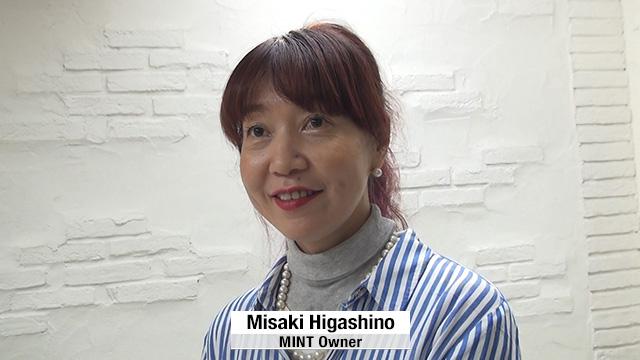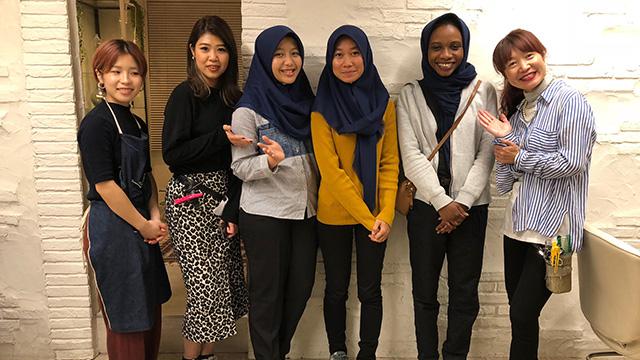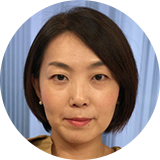While Japan's tourism industry is becoming more aware of the need to accommodate Muslim visitors' religious traditions, there is still much to do to create a completely barrier-free environment for them. Visits to the beauty salon, for example, still pose a challenge.
Muslim women cover their hair with a hijab as a sign of commitment to their religious faith. Only male family members are allowed to see women with their heads uncovered. For Muslim women living in Japan, this presents a problem for visiting a hair salon, which is not usually a 'women only' environment. But one Tokyo beauty salon is making it possible for women to remove their hijab without stress.

Marianti is a university student from Indonesia currently studying in Japan. She went to the salon, MINT, in late September with two Muslim friends. It was her second visit there, but the first for her friends.
“Most Japanese salons don't separate men and women the way we do in Indonesia, and that makes us hesitate to go,” said Marianti. Salon MINT, however, has found a way around the problem.
Marianti's friends, Aleen Mahana from Sudan and Rifa Nur Khairunnisa from Indonesia, have lived in Japan for some years, yet had never stepped inside a Japanese salon before then.
“I have my hair cut only when I'm back home,” said Rifa, and Aleen concurred. They said many Muslim women in Japan do the same.

Meeting new demand
MINT launched its service for Muslim women in April. The salon is in an area of central Tokyo filled with shops and restaurants attracting both Japanese overseas visitors. Owner Misaki Higashino launched the service after a Muslim woman from United Arab Emirates came to her salon last November.
Higashino was surprised when the woman sat in the stylist's chair and removed her hijab, revealing a vivid blue hair color. She pulled out pictures of an artist with violet-colored hair and asked Higashino to dye her hair that color.
“It was quite shocking for me, but I learned that each Muslim woman has a unique style and character that we don't see under the hijab," said Higashino. "And they want to enjoy their hairstyle even though they can’t show it to the outside world.”
She sought opinions from Malaysian women in Japan to understand their needs are how they viewed Japanese salons. They told her how difficult it was for them to have their hair done in Japan and said they were cutting each other's hair at home.
“I thought they should be able to enjoy having different hairstyles and treatments the way we do," said Higashino. "I believe the salon experience is a form of entertainment that can give people a good impression of our country.”
Like most Japanese salons, Higashino's employed both male and female beauticians and served both genders in the same room. Based on the advice she received, she created a large private room for use at specified times by Muslim women. She also allocated space for daily prayers, considering the time it takes for curling and hair coloring. In addition, she offered certified vegan organic shampoos and conditioners.

Barrier-free hospitality
“I feel so good,” said Rifa as she leaned back in the reclining chair for a shampoo. It was her first experience having her hair done by a Japanese beautician. She said there must be many other Muslim women who feel they can't get their hair done in Japan. “I’m happy to have found this place,” she added.
Aleen had decided just to watch that day. She was also worried about taking off her hijab, but gradually was able to relax in the salon.
“It’s impressive because this salon is very clean and spacious compared with the one in my home country, and the employees are very kind to us too,” she said.
By the time her friends had finished their blow dry, Aleen had an image of how she should change her hairstyle.
“I want it straight with bangs next time,” she said. Higashino was delighted and suggested she try a makeup and photo session as well next time.
She said she enjoys developing her curiosity about Muslim women and their inner beauty by recommending news styles of hair and makeup. “I always feel like it's sacred to treat Muslim women's hair. With that in mind, I want to help them release stress and boost their enthusiasm for daily life."
Marianti said the salon is comfortable not just because it's a private space, but because of the hospitality and welcoming atmosphere. "The people are kind and make it easy for us to talk about ourselves. That’s why I like it here."

The salon sponsored a study-abroad program in the Philippines last year as a company retreat, to improve employees' English-language skills for serving clients from abroad.
Higashino said the memory of local hospitality and communicating with people there will stay longer than if they had been visiting just as tourists. And she believes her salon, MINT, will be a place that Muslim visitors also hold special.

